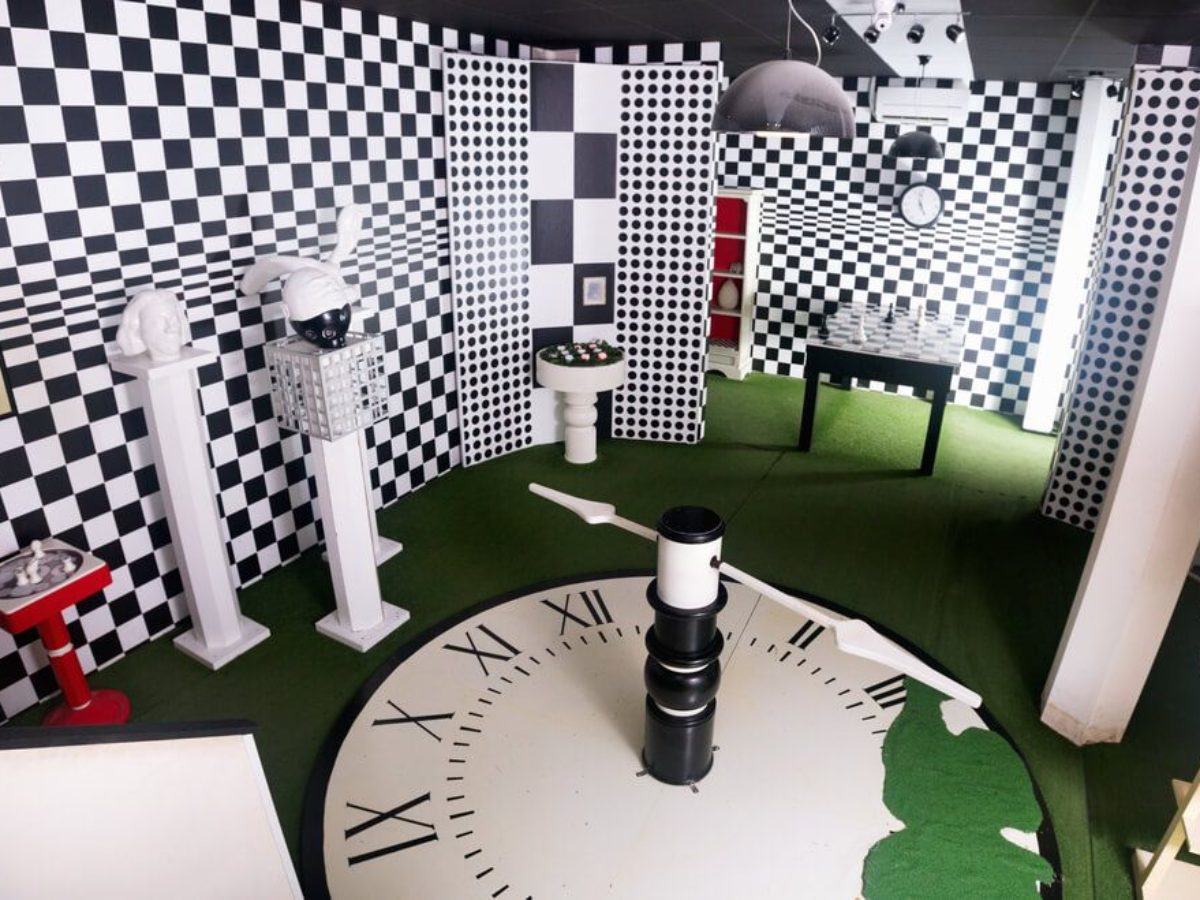Minneapolis Escape Room-- Interesting Challenge Obstacles for All Ages
Minneapolis Escape Room-- Interesting Challenge Obstacles for All Ages
Blog Article
Group Strategies: Just How to Work together Efficiently in an Escape Space
Navigating the intricacies of a getaway room demands even more than simple interest; it calls for a well-coordinated strategy grounded in clear communication, critical duty jobs, and skilled time monitoring. Teams need to proactively listen to each member's insights, designate functions that straighten with individual staminas, and preserve routine check-ins to make sure focus and stop redundancy. By fostering a setting that values cohesion and adaptability, teams can considerably heighten their performance and success prices. The nuances of these methods can change the experience, yet just how specifically can they be implemented to make the most of the potential for success?
Establish Clear Interaction

To facilitate clear communication, it is vital to mark a central factor of call for details dissemination. This duty entails summarizing searchings for and proposed approaches to ensure everyone remains on the very same web page. In addition, taking on an organized approach to discussions can prevent disorderly exchanges. Quick, concentrated updates from each group member can keep the team informed without overwhelming them with information - best escape room.

Appoint Roles Purposefully
While clear interaction sets the structure for reliable synergy, designating duties strategically ensures that each team participant's toughness are used effectively. In a getaway space circumstance, the time-sensitive and complicated nature of difficulties necessitates a well-organized method to job delegation. By recognizing and leveraging individual proficiencies, groups can optimize their analytic abilities and boost overall performance.
Someone with a keen eye for detail could stand out in locating covert items, while a logical thinker could be better fit to fixing puzzles. This duty frequently needs solid organizational and social skills.
2nd, guarantee that functions are flexible and versatile. As new challenges emerge, the team must be able to pivot, reapportioning tasks as needed. This flexibility assists keep energy and avoids bottlenecks that could occur as a result of inflexible function jobs.
Eventually, a tactical method to role job not just makes the most of the staminas of each staff member yet additionally fosters a natural setting, driving the team in the direction of a successful escape.
Make Use Of Diverse Abilities
Recognizing and harnessing the varied skills within your group can dramatically elevate your performance in an escape area. Each staff member brings unique staminas to the table, and properly leveraging these capacities can accelerate problem-solving and improve general effectiveness. For instance, an employee with strong analytical abilities may excel at deciphering complicated codes or patterns, while another with eager empirical abilities might quickly detect concealed hints that may overlook.
Motivate team participants to articulate their insights and concepts without delay, making sure that all potential services are taken into consideration. Additionally, designating tasks that line up with each see page participant's staminas can stop traffic jams and guarantee that development is continual.
Furthermore, variety in abilities usually equates to variety in thinking styles, which is indispensable in an escape space setting. While some obstacles might call for sensible reasoning and precision, others could benefit from imaginative and side reasoning. By recognizing and leveraging this hop over to here variety, groups can deal with a more comprehensive series of obstacles a lot more efficiently, thereby increasing their chances of a successful escape.
Manage Time Efficiently
First, assign initial mins for a fast survey of the area. Recognize noticeable problems and divide jobs based upon group members' strengths, ensuring that no one is idle. Establish interior time checkpoints to evaluate progression periodically; for example, goal to have half the problems resolved by the mid-point of the video game. This practice can aid keep the group focused and prevent time from slipping away unnoticed.
Additionally, avoid one-track mind. If a puzzle is taking also long, turn team participants or proceed to another difficulty, returning later on with fresh point of views. Communication is critical-- maintain everyone updated on addressed problems and staying tasks to prevent redundant efforts.
Last but not least, utilize any tips or clues moderately yet tactically - best escape room. Recognizing when to request help can save important time. By adhering to these time administration principles, groups can significantly enhance their possibilities of an effective and pleasurable getaway area experience
Debrief and Mirror
Representation is an important aspect of group advancement and enhancement in the context of getaway rooms. Once the obstacle minneapolis escape room is completed, whether efficiently or otherwise, it is vital for the group to involve in an organized debriefing session. This process permits employee to evaluate their efficiency, identify strengths, and pinpoint locations for renovation.
Start the debrief by reviewing what worked out. Highlight certain instances of efficient communication, problem-solving, and partnership. Recognizing these favorable actions enhances them and encourages their repeating in future obstacles.
Next, deal with the barriers experienced. Review minutes of confusion, miscommunication, or inefficient strategies. Urge an open and positive discussion where staff member can share their perspectives without fear of objection. This promotes a culture of constant enhancement and discovering.
Verdict
In conclusion, effective partnership in a retreat area is predicated upon clear communication, tactical duty assignments, the reliable use of diverse skills, and skilled time administration. Routine check-ins and organized debriefings are necessary for keeping emphasis and cultivating continual enhancement. By developing a natural and adaptive team environment, the probability of efficiently solving puzzles and achieving the goal of running away the room is dramatically boosted. This technique not only guarantees success yet additionally advertises cumulative growth and discovering.
Report this page